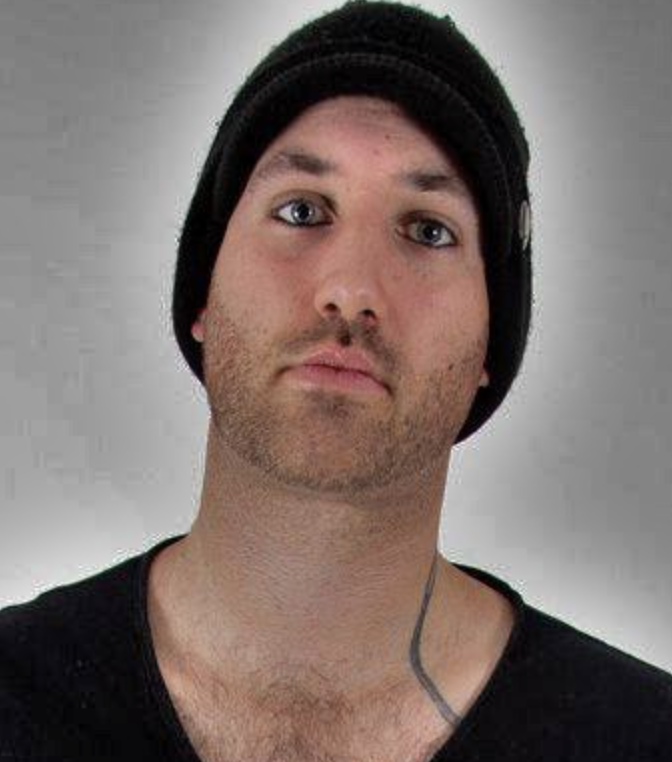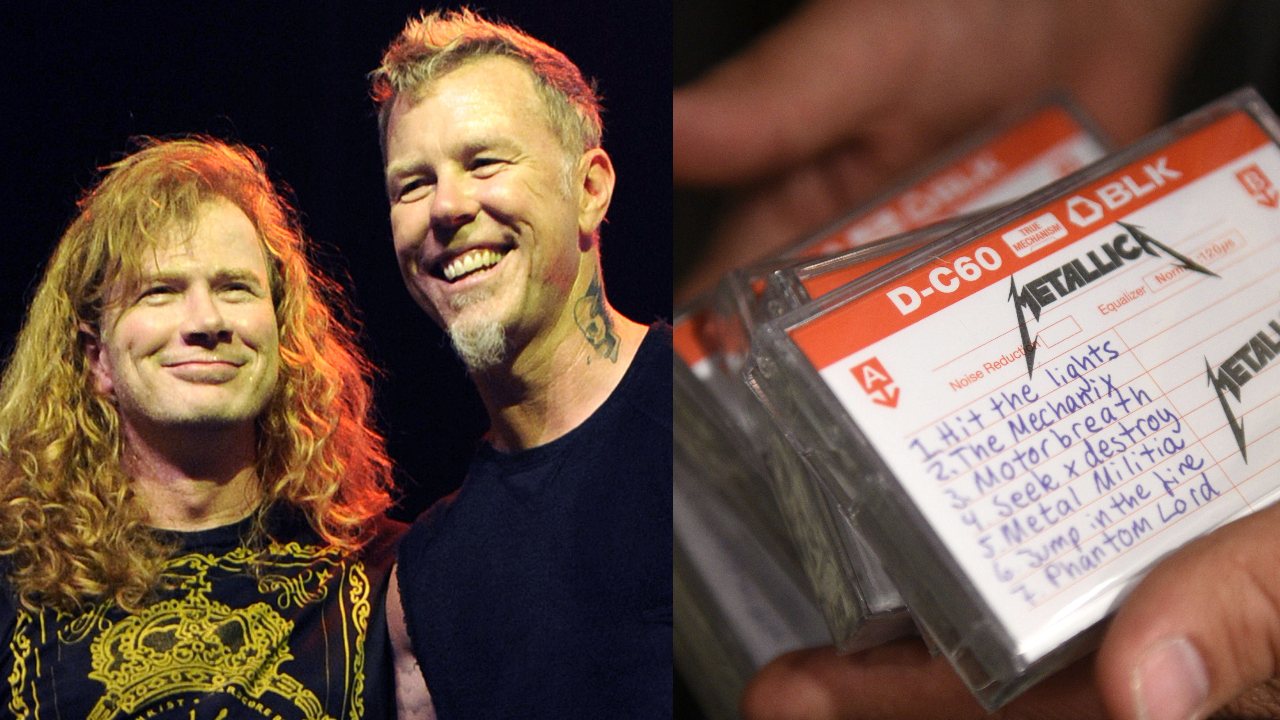Dave Navarro: "No one saw the 90s coming"
From leading the alt-rock boom of the 90s to dealing with his mother's tragic death, Jane's Addiction guitarist Dave Navarro guides us through the lessons he's learned

Dave Navarro has, over the course of his 30-plus year career, developed into a genuine icon of alternative rock. Best known as the guitarist with the hugely influential Jane’s Addiction, he has gone on to collaborate with a staggering cast of musicians from Red Hot Chili Peppers, Nine Inch Nails and Guns N’ Roses to Puff Daddy, Janet Jackson, Alanis Morissette and Christina Aguilera, all while transitioning from a mainstream TV star as a host and judge on Ink Master to a working street artist under the moniker lifeafterdeath. It’s been a hell of a life for the Californian native. Here's what he's learned from it all so far...

Friendships can last forever
“My first gig was at [LA’s] MacArthur Park, when I was in high school. There were about 15 people there. It was amazing, the highlight of my life. [Future Jane’s drummer] Stephen Perkins was playing the drums, and here we are over 30 years later, and Stephen and I spoke this morning. Amazing!”
Children need our love and support
“My most recent art print started when I heard about the US government’s treatment of children in the border crisis. I made a prison and took an actual toilet from the immigrant detainee holding areas and put a picture of a little girl in it. I called it ‘Government Care?’, because have the government ever cared about children? They don’t make money, they can’t vote, they’re an afterthought who have consistently been treated as a nuisance rather than with empathy, even dating back to the lack of care in the atomic age when children were told to sit under this desk, put this mask on and everything would be fine. We have no idea of the post-traumatic stress these kids were put under. I found a new purpose in that image, and the proceeds went to the charity helping those young people.”
Art feeds my vision
“I love playing guitar and being a member of Jane’s Addiction, and coming up with ideas together as a collective, but my art gives me a singular voice and frankly I feel that I’ve been very fortunate to be given that. It’s really refreshing to come back to that away from my usual workplace. The vision you’re trying to reflect is also very important to me, I always try to have something I’m working on that is meaningful. Sometimes what appears to be the most mindless image, something that seems very typical, can mean so much through another person’s eyes; that’s the beauty of this medium, there are no rules. I like to do things that are less obvious so that anyone can write their own story. That helps me find my community; the people that are drawn to that end up being my friends, my colleagues, my family.”
Art is for everyone
“I grew up in LA. Both my parents were artists, so if there are negative connotations with art then I’m not aware of them, and I’m glad I’m not aware of them. It never seemed elitist to me, it doesn’t feel that way when you’re in the trenches. It’s painstaking and an emotionally draining experience. I’m more interested in where art can take me; I have more fun in the doing and the process to worry about the gallery or collector scene.”
Playing guitar gives me a different voice
“Playing the guitar gives me a voice among many. If we were a background group, a chorus, we all have a voice and I love the collaborative energy that takes place within that context. If you think about it, all of us in Jane’s Addiction do a lot of different stuff. We all enjoy what we do together, but we all like exploring ourselves as well. We’re lucky we can do Jane’s when we want to, and do other things when we don’t want to. It makes us more energetically focused when we are together. Those voices can find each other with more ease when we’re relaxed and happy and fulfilled as individuals.”
Jane's Addiction will always be brothers
“I heard from Perry [Farrell, Jane’s frontman] and Stephen this morning. We are a tight group of brothers and recognise that we always will be. Especially now, you know, with what the world is facing, it is very difficult to hold on to 30-year-old band drama. One way or another we’re all going to be at peace, so we may as well find peace while we’re here together. It’s a fun thing, we are looking forward to playing again.”
Sign up below to get the latest from Metal Hammer, plus exclusive special offers, direct to your inbox!
We never considered ourselves celebrities
“I got started a long time ago, and things were very different, it was harder to ascertain whether or not you were a recognisable public figure. It just sort of crept up on us, we kind of just got used to the environment as it went along. When you buy a goldfish, you don’t just put it in the water, you put the bag in the tank and then let it get used to the temperature until it’s ready to start swimming along. I think that’s what it was for us: it was so gradual, there were no cell phones or internet, you actually had to get out of the house to discover anything. In this day and age, it is much tougher. I wouldn’t want to be starting on that journey now, I don’t envy the lives of most well-to-do entertainers, it must be very small and shut out from the world.”
No-one saw the alt-rock boom coming
“The early 90s was exciting, but I don’t think I was aware I was doing anything that would have any long-lasting impact. It was crazy to watch what used to be our club scene become this huge, international touring festival. It was fun; that was the first time when really different acts were on the same bill, a great breaking down of barriers. The first Lollapalooza was such a diverse bill, so we knew we were doing something different, but in terms of it having the impact it had, no one saw that coming. I was just aware we were having a good time.”
It's hard to recognise your own legacy
“I’ve been impacted by a lot of that art and music that came around the same time as us, so that music is important and if we’re part of it, then I guess we’re somehow culturally important. But you have to understand, I have only lived my life, so I don’t know how any of it would land on someone else. But I really appreciate and am super-grateful to have been part of a movement like that.”
Collaboration is rewarding
“I think that the best inspiration, the best teachers, are the people that do what you do. I know what I sound like with Jane’s Addiction, but I don’t know what I sound like with Steve Vai, so going out to work with Steve was an incredible experience for me. Like art as well, I know how it looks in my head, but if you have someone else in the room, it can lead to accidents and mistakes, which are a treasure trove of untapped resources. And it’s just fun! What could be better than learning from the people you admire?”
Playing with the Red Hot Chili Peppers was great
“Jane’s and the Chili Peppers played together a while ago, and [Chilis guitarist] John Frusciante came out and played a few songs with us. It was great to see them. Our time together goes way back before I joined the band; they’re great players and great musicians, and they taught me a lot about my overall direction as a human being and a player. What an amazing experience to go from one really successful band to another. I don’t regret it, we worked on some stuff that was really cool, but my time was up, and there you have it. It wasn’t possible to do more so I don’t regret anything.”
Be gentle with your grief
“For me I thought that making the film [Mourning Son, Dave’s 2015 documentary about the impact his mother’s death had on his life] would close the door, but it actually opened the door. I maybe should have thought about it more because I didn’t realise it would have such an impact on me, but it forced me to deal with that impact and now I have a much more positive view of my mom’s story. I now try to think more about her amazing life than I do her death, because we always tend to fixate on the death, but there is a wonderful life to celebrate and think about there. It requires a lot of patience and a gentle touch with yourself, you have to allow yourself to feel, you have to share with other people if you’re feeling down. I go to counselling now, I meditate now, I have to do a whole bunch of things to stay OK. I’ve learned that those kinds of actions are a small price to pay.”
For more on Dave's art projects, see tinyurl.com/punkrockart and dueldiagnosis.com.

Stephen joined the Louder team as a co-host of the Metal Hammer Podcast in late 2011, eventually becoming a regular contributor to the magazine. He has since written hundreds of articles for Metal Hammer, Classic Rock and Louder, specialising in punk, hardcore and 90s metal. He also presents the Trve. Cvlt. Pop! podcast with Gaz Jones and makes regular appearances on the Bangers And Most podcast.
